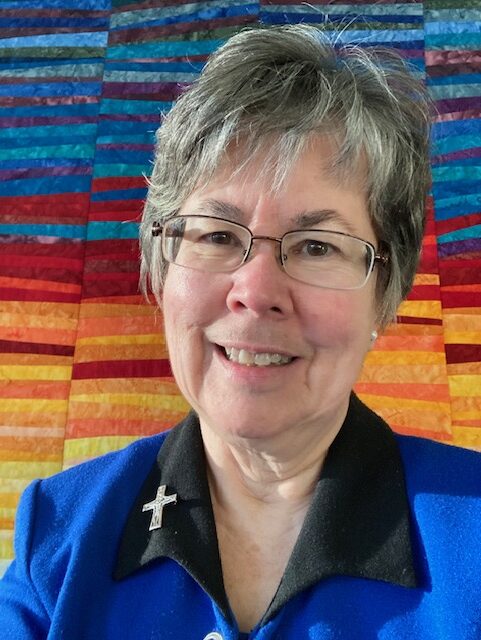In this month devoted to Black History, we Catholics remember and honor several Black Saints and Saints-to-Be. On a table in the Gathering Room of our Sisters of Notre Dame chapel in Chardon, Ohio, you can see a display of their pictures.
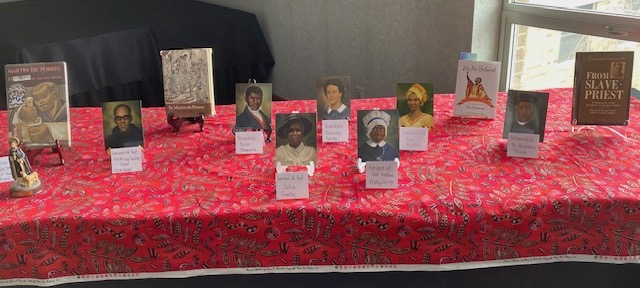
On the window sills along a hall stand their pictures with a quotation from them. This week I’m letting them help produce this blog post . . .
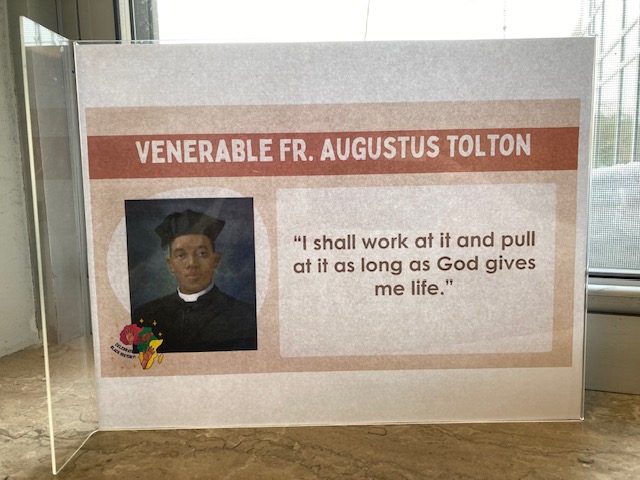



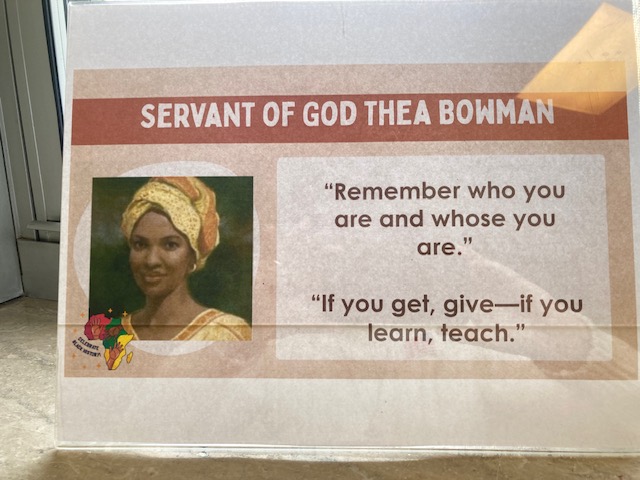
How appropriate that February is the month of St. Valentine’s Day, a celebration of love. These holy people loved God with all their heart.
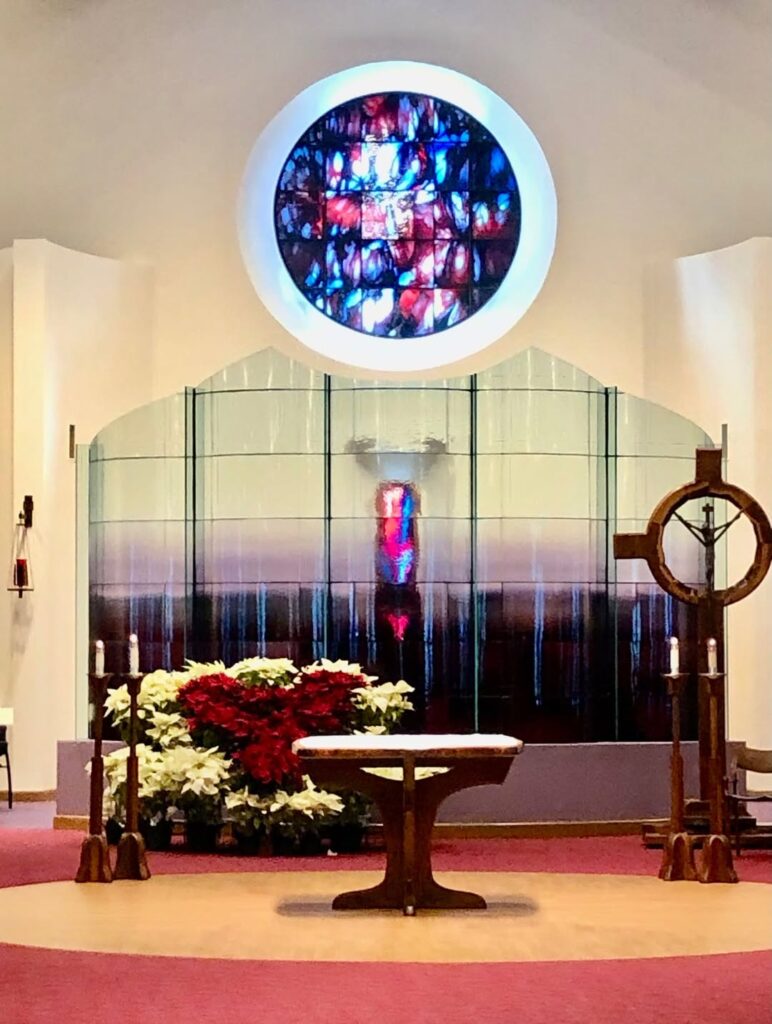
Last week I introduced St. Martin de Porres. Today may I present Saint Josephine Bakhita, who is not well-known. She died the year I was born, 1947, and became the first African woman to be canonized in modern times. She is the patron saint of Sudan, which definitely needs her intercession nowadays.
Saint Josephine Bakhita

Josephine was born in Sudan around 1869, one of seven children in a well-to-do family. About the age of 8, Arab slave traders abducted her and and forced her to walk barefoot about 600 miles to El-Obeid. She was so shocked that she forgot her name; her enslavers called her Bakhita, Arab for lucky, and made her embrace Islam. On the journey she was sold twice.
In El-Obeid, an Arab bought her as a maid. One of his sons who was offended by her whipped and kicked her so cruelly that she was confined to her straw bed for over a month. Her next owner, a Turkish general, had her serve two women who whipped and beat her every day. They subjected to the horrific traditional custom of scarring. In all, 114 patterns were cut into her skin and filled with salt.
Improved Conditions
In 1883, Bakhita was bought by a kind Italian man and two years later left for Italy with him. After riding a camel for 400 miles, they arrived at a Sudan port and sailed to Italy. She was given to a friend, Augusto Michieli, and became a nanny to his daughter.
Although the Michielis went to Sudan to prepare to move there, the daughter and Bakhita were left in the care of the Canossian Sisters in Venice. Bakhita said, “Those holy mothers … introduced me to that God who from childhood I had felt in my heart without knowing who He was.”
When it was time to go to Sudan, Bakhita refused to leave. A court ruled that because the British had outlawed slavery in Sudan before she was born and in Italy it was illegal, she had never legally been a slave. She was free and chose to remain with the Canossians.
Conversion and Vocation
Bakhita was baptized, given the name Josephine, confirmed, and received Communion from the future Pope Pius X. Jesus became her “Master.” She joined the Canossians. For 42 years she was cook, sacristan, sewer, and doorkeeper at the same convent. When she visited other convents, she helped to prepare Sisters for work in Africa. She was known for her gentleness and humility.
Despite later pain and sickness, Sister Josephine was cheerful. One Saturday, when asked how she was, she replied, “I am so happy: Our Lady … Our Lady.” Those were her dying words.
When asked “What would you do if you were to meet your captors?” Josephine replied, “If I were to meet those who kidnapped me, and even those who tortured me, I would kneel and kiss their hands. For, if these things had not happened, I would not have been a Christian and a religious today.”
Sister Thea Bowman
You may recall that in 1989 Sister Thea Bowman addressed the United States Bishops and concluded by having them sing “We Shall Overcome” during which they linked arms. She is now a Servant of God, a step on the way to canonization. Here is a video of Mahalia Jackson singing that song:
Here also is a powerful video of Sister Thea’s speech to the bishops:
I’ve encountered sundry wonderful Black people in my personal history, such as my first-, second-, and fourth-grade teachers, a librarian in the public library I visited as a child, a schoolmate at Notre Dame Academy, a librarian and two housekeepers at Notre Dame College, the maintenance man at Regina High School, Cleveland’s Franciscan bishop, and the pastoral minister in our Health Care Center.
- Which Black person has enriched your life?




